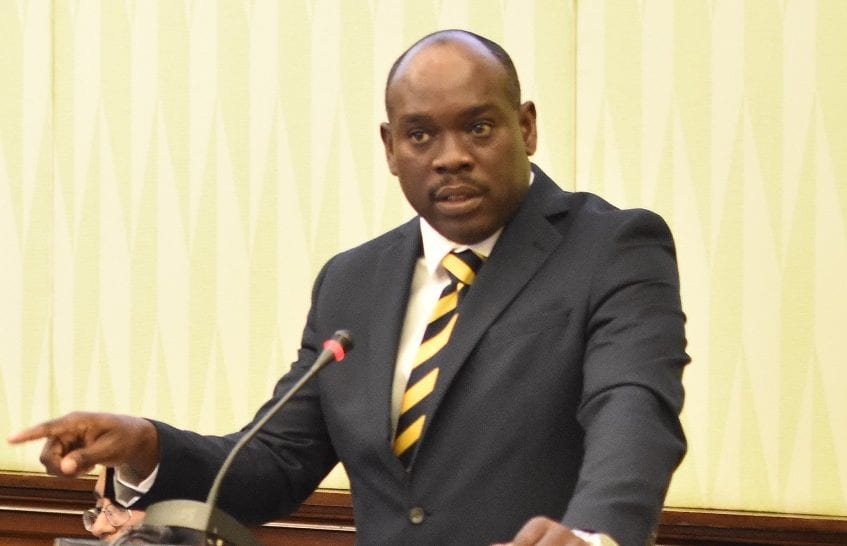
Minister in the Ministry of Finance, Ryan Straughn has reinforced the need for government departments to “come up to speed” with the changes to government’s procurement rules by changing their internal systems to see the benefits of the reforms that have been undertaken.
He issued this reminder today during his address at the start of a one-week workshop hosted by the Procurement Department for public sector departments at the Accra Beach Hotel Resort and Spa, Rockley, Christ Church.
Emphasising the necessity of procurement planning, the Minster stressed that this was vital for government to understand the financing and cash flow for departments, especially those that relied on government for a subvention.
He added that in such cases the procurement process must “sync with the overall cash flow management of government in order to make sure that we can help you deliver on your mandate”.
“But it is important to understand that if your procurement is going to add to a one per cent increase in recurring expenditure, then you must let the Ministry of Finance know that. The reason that you must let the Ministry of Finance know that upfront is because as has happened before, some state-owned enterprises entered into contracts that we had to negotiate away as part of the debt restructuring, because it exposed taxpayers unnecessarily and at the time that the country simply could not afford to enter into those contracts,” the Minister stated.
Mr. Straughn added: “Therefore, procurement planning, as well as project appraisal, which I know the IDB is giving us some support in that space, is going to be critically important if you can deliver on behalf of the citizens of this country and do so in a responsible manner, and therefore, I want to reinforce that, that is important before you enter into any contemplation of procurement.
“That is why planning is important and it is important to let the Government Procurement Department know so that we can upfront, understand the nature of the potential exposure to taxpayers, and therefore, your role in this process is critically important.”
The Minister pointed out that government had modernised its processes by placing all the information on the Bonfire electronic procurement portal and insisted that all vendors must become familiar with the process.
Mr. Straughn challenged procurement specialists to inform as many people as possible as to what was happening with government by way of placing all of the information in the Bonfire portal to benefit all citizens.
He also shared with his audience that government had approved the use of standard billing contracts from April 1, this year to streamline the process of project execution, thereby minimising the “deluge of procurement requests that overwhelmed the system” as what previously obtained.
The Minister encouraged participants to share the knowledge gained from the workshops with their colleagues so that they were aware of how the changes “will impact how they have been working in the past”.
“That is perhaps one of the most fundamental things I hope you can take away from these sessions, because what we need to see, is greater execution of government work. And I believe that we’ve been able to put some of the ingredients in place to be able to help you do that,” Mr. Straughn underlined.
Meanwhile, the Inter-American Development Bank’s Country Representative for Barbados, Carina Cockburn, described Barbados’ Procurement Act as a critical piece of legislation which played a vital role in strengthening the island’s public procurement system.
“At the Inter-American Development Bank, we are committed to supporting countries across Latin America and the Caribbean in their efforts to improve governance, enhance institutional capacity and promote transparency and efficiency in public sector management. The Barbados Procurement Act represents a significant step forward in achieving these goals, and we are proud to be Barbados’ partner in this process.
“Public Procurement is central to how governments deliver services to their citizens, and it touches every sector of society, from infrastructure development to the delivery of public health, education and social services, to name a few. As such, a well- functioning procurement system is essential, not only for the efficiency of government operations, but also for maintaining public trust and ensuring that taxpayer funds are used responsibly,” she stated.
The workshop ends on Friday, November 15.
